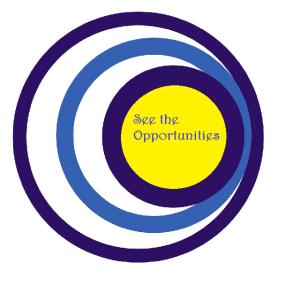 “Faith is not something to grasp, it is a state to grow into.” – Gandhi
“Faith is not something to grasp, it is a state to grow into.” – Gandhi
The job search can be the toughest job you will ever have. Sometimes despite “positive thinking,” great marketing, resolve, determination, focus on your goals and vision, doubts jump into your thoughts. Go ahead, admit it.
Pause and think about how you FEEL about building, connecting and interacting with your network. Those feelings dictates how your network grows, how fast you have an impact and your growth to the next level.
Sometimes when you reach for the phone or start to type an email your inner voice of doubt begins to chatter. It asks, “Why would this person be interested in hearing from me, we’ve not talked in years?” or “What will this person think of me?” You don’t want to be known as “underemployed and begging for help” or “that person that needs help to make it.”
When inner doubt shows up it can change how you feel. The way we feel directly impacts the actions we take. Especially in marketing ourselves, our value, and with whom we are willing to share information.
What you choose to do (or not to do) will determine the opportunities you have and those you will find. Actions directly impact the results you achieve, your income and your success. The choice of what to do will also impact how you FEEL and ACT this afternoon and tomorrow.
Discover how you feel. Decide if you like it or not. Decide if you want to change it or not.
How you feel shows up in how you THINK and ACT. If you feel bad, do you what that to continue?
What would be different if, as Gandhi suggests in the quote above, you grow into the faith that connecting or re-connecting with each person will bring good things to you and to them?
Intellectually, you and I already know you have significant value to offer. Why not grow the value you offer by sharing it with the world or at least your network?
Have the courage to BELIEVE the results you achieve are indeed coming from your feelings, thoughts and actions. Be a magnet for success and prosperity in your search. FEEL confident about your value and be willing to ACT. You must be aware of your feelings and take action or your will miss the opportunities available within your network.
Assess your network. Take inventory of the people you know. As in any business, inventory is an asset and will impact your bottom line.
The network of people you know is a component of your social and business capital. Who are your critical connections? Who are the critical connections you need to add to your network?
Create a plan to connect and stay connected. Who knows you? Who likes you? Who trusts you? Who will you connect with this week? How will you stay connected?
Share your feelings and thoughts below. Do you need help with your networking plan? Give Cindy a call.
 Have you given culture much thought? Seventy-five percent of the executives I work with rank culture more important than pay.
Have you given culture much thought? Seventy-five percent of the executives I work with rank culture more important than pay.





